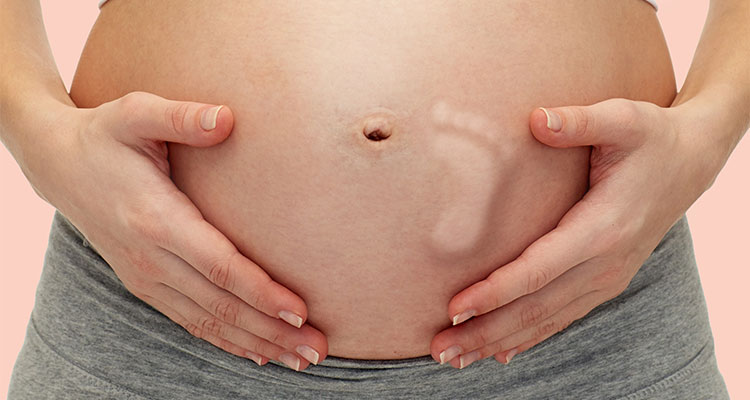An unborn baby can face a variety of complications while inside the womb, and these can affect their development, health, and wellbeing. Some complications may occur early in pregnancy, while others can develop later. Here are some common complications that an unborn baby may experience:
1. Miscarriage (Spontaneous Abortion)
- A miscarriage is the loss of a pregnancy before the 20th week. It can be caused by chromosomal abnormalities, infections, hormonal issues, or other health conditions of the mother, such as diabetes or thyroid problems.
2. Ectopic Pregnancy
- In an ectopic pregnancy, the fertilized egg implants outside the uterus, usually in the fallopian tube. This condition is life-threatening for the mother if not treated and can prevent the baby from developing properly.
3. Placental Problems
- Placenta Previa: The placenta covers or is very close to the cervix, potentially blocking the birth canal and leading to bleeding during pregnancy and delivery.
- Placental Abruption: The placenta prematurely separates from the uterine wall, which can cause heavy bleeding and deprive the baby of oxygen and nutrients.
- Placenta Accreta: The placenta grows too deeply into the uterine wall, leading to potential complications during delivery.
4. Infections
- Various infections can affect the baby, including:
- Rubella (German measles)
- Toxoplasmosis (a parasitic infection)
- Cytomegalovirus (CMV)
- Group B Strep
- Listeriosis (a bacterial infection often linked to food)
- Zika Virus can cause microcephaly and other brain defects in the baby.
- Sexually transmitted infections like syphilis, chlamydia, or herpes can also affect the baby’s health.
5. Gestational Diabetes
- Gestational diabetes is a form of high blood sugar that develops during pregnancy. It can increase the risk of having a larger-than-normal baby, which may lead to complications during labor. If uncontrolled, it may also increase the risk of the baby developing type 2 diabetes later in life.
6. Fetal Growth Restriction (IUGR)
- Intrauterine growth restriction (IUGR) refers to a baby that is not growing at a normal rate inside the womb, which can be caused by problems with the placenta, maternal health issues (such as high blood pressure or malnutrition), or genetic conditions. This can lead to premature birth or other health complications.
7. Preterm Labor and Premature Birth
- Preterm labor occurs when a baby is born before 37 weeks of gestation. Premature babies often have underdeveloped organs, particularly the lungs, which can lead to respiratory distress, feeding problems, and other health challenges.
8. Birth Defects
- Birth defects are structural or functional abnormalities that can occur during fetal development. Common birth defects include:
- Neural tube defects like spina bifida (incomplete development of the spinal cord)
- Congenital heart defects
- Cleft lip and/or palate
- Down syndrome and other chromosomal disorders
- Clubfoot, hip dysplasia, and other musculoskeletal issues.
9. Oxygen Deprivation (Hypoxia)
- Hypoxia occurs when the baby doesn’t get enough oxygen due to problems with the placenta, the umbilical cord, or the baby’s lungs. This can lead to brain damage, developmental delays, or stillbirth if not addressed promptly.
10. Umbilical Cord Problems
- The umbilical cord can cause complications if it becomes compressed or twisted, which may reduce blood and oxygen flow to the baby. Conditions like a cord prolapse (where the cord slips into the birth canal before the baby) or cord entanglement (where the cord wraps around the baby) can lead to serious risks during labor and delivery.
11. Hydrops Fetalis
- Hydrops fetalis is a serious condition in which there is an abnormal accumulation of fluid in the baby’s tissues and organs. It can be caused by heart failure, infections, or genetic disorders, and often results in premature birth or stillbirth.
12. Rhesus Incompatibility (Rh Factor)
- If a mother has Rh-negative blood and the baby has Rh-positive blood, the mother’s body may produce antibodies that attack the baby’s red blood cells, leading to hemolytic disease of the newborn. This can cause anemia, jaundice, and in severe cases, organ damage.
13. Preeclampsia
- Preeclampsia is a pregnancy complication characterized by high blood pressure and damage to organs, typically the kidneys. It can restrict blood flow to the placenta, leading to fetal growth restriction, preterm birth, and other complications. It may also increase the risk of maternal stroke or organ failure.
14. Multiple Pregnancies
- Twins, triplets, or higher-order multiples have a higher risk of complications, including preterm birth, low birth weight, and fetal growth restriction. Additionally, there is an increased risk of gestational diabetes, hypertension, and placental problems.
15. Stillbirth
- Stillbirth refers to the death of a baby after the 20th week of pregnancy but before or during labor. The causes can include infections, birth defects, placental problems, or issues with the umbilical cord or blood flow.
16. Congenital Infections
- Congenital infections, such as rubella or cytomegalovirus, can cause long-term health issues, including developmental delays, hearing loss, vision problems, and other organ damage.
Preventive Measures and Care
- Regular prenatal care is essential for identifying and managing many of these complications early on. Blood tests, ultrasounds, and other screenings can help monitor the health of both the mother and baby.
- Vaccinations, a balanced diet, exercise, managing chronic conditions, and avoiding harmful substances (like alcohol, tobacco, and illicit drugs) can reduce the risk of complications.
In conclusion, while there are several potential complications that can occur during pregnancy, proper prenatal care and early detection of issues can significantly improve the chances of a healthy pregnancy and baby.




